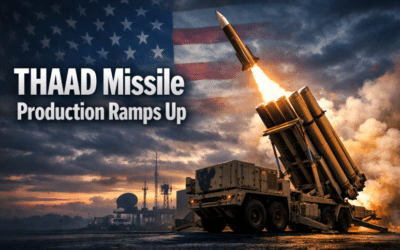Warsaw says, “The Polish army must be so powerful that it does not have to fight.”
Poland’s Deputy Prime Minister Jarosław Kaczyński told a group of arms manufacturers that Warsaw will have Europe’s strongest land force within two years through a series of weapons purchases. Warsaw believes increasing military spending to three percent of GDP and expanding its military to 300,000 personnel will make the Polish Army so powerful it cannot be challenged.
Kaczyński issued a letter to the International Defense Industry Exhibition being held in Poland this week. “In two years, we will have the strongest land army in Europe,” he said. “[The Polish Defense Minister] emphasized that the strength of the army is not just, and not primarily, its size but also its equipment, modernity, and innovation.”
Warsaw announced plans to significantly increase weapons spending last year. Next year, Polish military expenditures are expected to hit at least three percent of GDP. Some Polish officials hope the number could be pushed to as high as five percent of GDP in coming years.
Poland will spend the added funds on a sequence of massive weapons acquisitions, including multi-billion-dollar purchases of Apache Helicopters, Abrams Tanks, and HIMARS. Additionally, Warsaw plans to expand its military to 300,000 soldiers.
Polish officials claim the massive military buildup is an effort to prevent war. “The Polish army must be so powerful that it does not have to fight due to its strength alone,” said Polish Prime Minister Mateusz Morawiecki. Defence Minister Mariusz Błaszczak remarked, “We want peace, and if we want that we must prepare for war – in connection with that, we are strengthening the Polish Army.”
However, some experts believe the policy will weaken Poland economically. Polish military expert Robert Czulda, a Resident Fellow at the Casimir Pulaski Foundation, said, “It seems highly likely that such a large scale of planned orders is largely driven by a political populism, aimed at gaining popularity here and now, rather than to be a real, comprehensive, and well-thought-out plan for harmoniously strengthening the armed forces,” he wrote. “Poland should ensure that these procurement programs are sustainable and affordable in the long term. The country should avoid a risk of overspending, which now seems very high.”
Reprinted with permission from antiwar.com.
































